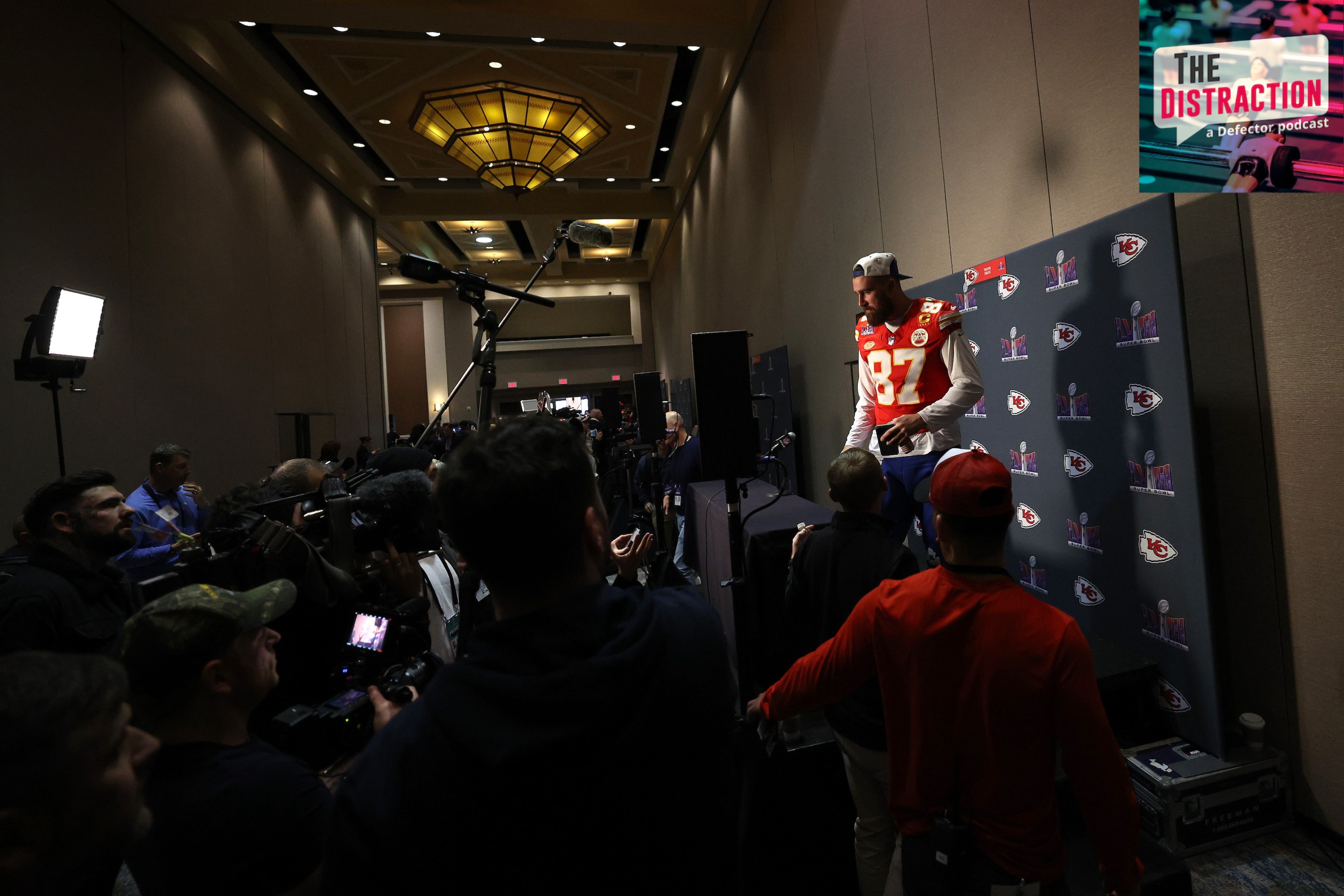Because the baseline mainstream conversation about football is still pretty dumb, it can be easy to miss how far that conversation has come just over the last couple of decades. There are a lot of things in the culture like this, now that I think of it, although that real but hugely relative progress is easier to appreciate in football than it is in the other, more significant areas in which the United States is both greatly improved and shockingly remedial. Given what a towering bummer those other things are to talk about, and also given that there's a very important football game coming up on Sunday, it made sense for us to focus on the football stuff. This week, we were joined by Matthew Coller, host of the Vikings-intensive Purple Insider website and podcast, frequent Drew Magary text recipient, and author of the book Football Is A Numbers Game, which traces the still nascent but undeniable rise of analytics in the NFL.
Matthew was on radio row in Las Vegas, and while I sadly must report that he said it did not smell crazy in there—I had always been very sure that it did in fact smell crazy in there—he painted a vivid picture of the NFL's annual brand carnival. His descriptions of the oversized novelty slot machines and the "Bounty House" did not really make me want to be there very much; when he talked about the opportunities to ask a passing Ed McCaffrey if knew how Byron Chamberlain was doing, I was forced to reconsider that. But we only had him for half an hour, and there was a lot of interesting think-y football stuff to talk about, and so our tour of the brandscape was a brief one. You don't have Matthew Coller on the podcast to remember Troy Williamson's avant-garde approach to catching passes (although we did do that), you have him on to talk about how NFL teams are and aren't participating in the broader analytics revolution sweeping sports.
That conversation has been going on at sites like Pro Football Focus, which is a focus of Coller's book, for far longer than it has in NFL front offices, and there has predictably been some friction as this wealth of data and new ways of contextualizing and conceptualizing what makes football work have made their way into the famously idea-averse reaches of NFL front offices. Coller identified the analytics movement in the NFL as beginning in earnest with the Eagles' 2017 Super Bowl victory, which didn't just convince (some) NFL teams that it was a good idea to go for it on fourth down, but demonstrated that all these ideas could pay real dividends for teams that put them to judicious use. That wasn't a very long time ago, though, and "judicious use" remains something of a moving target even for teams that have embraced the concept.
While the league's copycat tendencies have made sure that every team at least has an analytics department with a seat at the table, the complexity and contingency of this kind of analysis and the sport's legacy caveman tendencies have complicated that process, and made it so that some teams are not just ahead of others, but doing very different things. The more advanced march of these concepts through basketball and especially baseball have shown that, eventually, this will arrive at some new equilibrium, and something like consensus, but the NFL is decidedly not there yet. This makes it an interesting time to talk about this kind of thing, not just as two sophisticated and forward-looking teams prepare to face off in the Super Bowl but as the sport as a whole tries to figure out how to contextualize and make effective use of all this new data. If I'm making the NFL's relationship to analytics sound kind of like the first act of 2001, that's not entirely by accident; Coller compares the NFL's understanding of all this to a child who has just learned how to climb out of its crib. He knows a lot and is a good talker, and the conversation was an interesting one.
But then he had to return to the radio row churn, and it was just Drew and I and the wild depravities of the Funbag for the back half of the episode. (Listeners who don't skip through the ads will also get to hear me debut a new voice, Unbearable NPR Guy, in an ad for our new shirt in the Defector merch shop.) There, we fielded some bracing voicemails about which sport features the most pointing and the current state of the art in conservative football mom aesthetic. After a brief and unhelpful German lesson, we kicked around the question of which NFL coaches would be most capable of understanding, and most amenable to, and most able to make motivational use of, the writings of Karl Marx. Also we talked about how long a piss is "too long a piss." If this was something of a step down from the high-minded first half of the episode, it's important to remember that all of this is a dialectic, and a process. It is always the first act of 2001 in here, but we're getting better at mashing these rocks together with every week.
If you would like to subscribe to The Distraction, you can do that through Apple Podcasts, Spotify, or wherever else you might get your podcasts. Thank you as always for your support.






